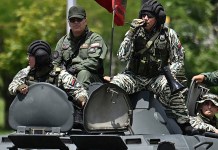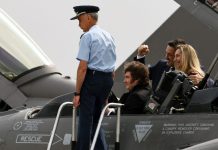Pakistan’s top military official, Field Marshal General Asim Munir, has outlined a brazen plan to cement ties with the Trump administration. He has prepared a blueprint for building and operating a deep-sea port in the country. Islamabad is basing the proposal on Washington’s quest to secure a supply chain for rare earth minerals to support its energy and security industries.
However, if the proposal comes to fruition, it can alter the strategic calculus of the Arabian Sea by giving the US a foothold in the sensitive region.
The Pakistani pitch aims to capitalise on the recent thaw in Washington-Islamabad ties. The development will be closely watched by regional players, including India, Iran, and China.
Indian Navy veterans, however, do not think that the US will take the bait as it already has considerable influence in the region, with its 5th fleet operating from Bahrain.
Pakistan has also been leveraging its ports to extract economic investment and strategic partnerships from other countries. The geopolitical trade-offs often come at the cost of Pakistan’s autonomy and impact the regional security calculus.
Similar to the access China enjoys at Gwadar Port, a proposal discussed with some US officials, ahead of a meeting between US President Donald Trump and Pakistan’s top military leader, Field Marshal General Asim Munir, involves the US developing a port at Pasni.
Pasni is situated on Pakistan’s Makran coast, and with the establishment of a new railway line, it can become a hub for transporting minerals from Pakistan’s interior. Also, it will help the US to gain access to Central Asia.
According to the Financial Times, the project to develop the port would cost Washington $1.2 billion and could help the US to build a supply chain for copper and antimony. These are critical ingredients in batteries, fire-retardant materials, and missiles. The financing model is proposed to be a mix of Pakistani federal and US-backed development finance.
In September, a Missouri-based company, US Strategic Metals (USSM), signed a memorandum of understanding with Pakistan’s military engineering arm to boost collaboration.
Pakistan has already shipped its first batch of enriched rare earth elements and critical minerals to the US, marking the launch of a $500 million partnership with USSM. The inaugural shipment contained antimony, copper concentrate, and rare earth elements, including neodymium and praseodymium, the countries said in a statement.
The collaboration plans include the USSM setting up a poly-metallic refinery in Pakistan. With the price for antimony spiking since Beijing imposed a ban on selling it to the US in 2024, the US has been exploring more options to secure the rare earth minerals for its energy and security sector.
At the beginning of 2025, Prime Minister Shehbaz Sharif claimed that the country possessed mineral reserves worth trillions of dollars, and foreign investment in the mineral sector could help the country overcome its economic woes while freeing it from the burden of massive foreign loans.
Pakistan’s mineral wealth is located in the insurgency-hit southwestern province of Balochistan. In August, the US State Department had designated the Balochistan National Army separatist group, the Majeed Brigade, as a foreign terrorist organization. This is seen as the US investing in stabilizing the region to allow its companies to mine the minerals.
US & China In Balochistan?
Even if the proposed port is civil infrastructure, it could help the US to respond quickly in case of a crisis. With South Asian politics being shaped by the rivalry between China and the US, Pakistan appears to be playing the two powers against each other.
Vice Admiral Shekhar Sinha (retired), who was the head of the Indian Navy’s Western Naval Command with the Arabian Sea as its operational area, opined that the US does not need Pasni for a foothold in the region.
“The 5th fleet is located in Bahrain, from where the US exercises great control over the Arabian Sea. Take the present situation – isn’t the US the most powerful navy in the Arabian Sea?” Vice Admiral said in response to a query from the EurAsian Times.
He added, “Gwadar is next door, which is by and large Chinese. It will put the US and China in a direct face-off, which is tactically not a sound situation.”
Another Indian Navy veteran, Commodore Anil Jai Singh (retired), concurred with his opinion. He told the EurAsian Times: “Given the great power contest likely to take place in the Indian Ocean, the project is fraught with risk.” The US, India, China, and Pakistan have major stakes in the Arabian Sea.

Can Pakistan Afford To Sideline China?
Incidentally, the city of Pasni is situated in the Gwadar district of Balochistan, which has been a central part of the China-Pakistan Economic Corridor.
China funded the construction of the Gwadar port in 2007 at a cost of nearly $250 million, and it has been operated by the China Overseas Ports Holding Company since 2013.
After the port, Pakistan inaugurated the Gwadar International Airport in Balochistan in January this year. However, in recent times, the Chinese investments in the region have been coming under attack from separatist militant attacks in southwestern Balochistan.
The total investment in the CPEC, of which Gwadar airport is a significant part, amounts to approximately US $62 billion, with about US $30 billion invested to date. According to World Bank reports, China has become Pakistan’s largest creditor, with a debt of US$29 billion.
The question remains whether Pakistan can afford to antagonize China to cozy up to the US.
Commodore Singh added: “China will not let Pakistan give naval base facilities to the US so close to Gwadar… Pakistan will require China’s tacit approval.” Also, he remained skeptical about whether the proposal is to give a port or a port terminal to the US.
Presently, Pasni has a modern fish harbour with four piers and a cargo jetty, which has been suffering from silting since 2003. Media reports have indicated that the lack of maintenance of the port has resulted in the jetty being dysfunctional. The jetty has sunk into 1.5 million cubic meters of silt.
A delegation of the CPEC Parliamentary Committee is said to have visited Pasni in July 2020 and hinted at the rehabilitation of the Pasni Fish Harbor, including the jetty. However, there has been no progress on that front. And it seems Pakistan wanted to utilise its proximity to the US to get this strategic port running.
As thaw appeared in the US-Pakistan ties, Islamabad is struggling to balance its relations with Washington and Beijing. In July 2025, Pakistan, which had long been touted as the first export customer of China’s 5th-generation fighter, the J-35, did a volte-face and stated that there were no plans to acquire the fighter jet.
Pakistan’s denial regarding the purchase of the Chinese J-35 jet came after the visit of Pakistan Army Chief Field Marshal General Munir to the US. US President Trump has praised Munir as “really impressive” and credited him for helping him avert a nuclear conflict between India and Pakistan.
Will the “Bromance” that Munir has forged with the US be sufficient for it to replace its long-term friend, China?
- By EurAsian Times Desk with Inputs from Vice Admiral Shekhar Sinha and Commodore Anil Jai Singh
- Mail us at: editor (at) eurasiantimes.com




